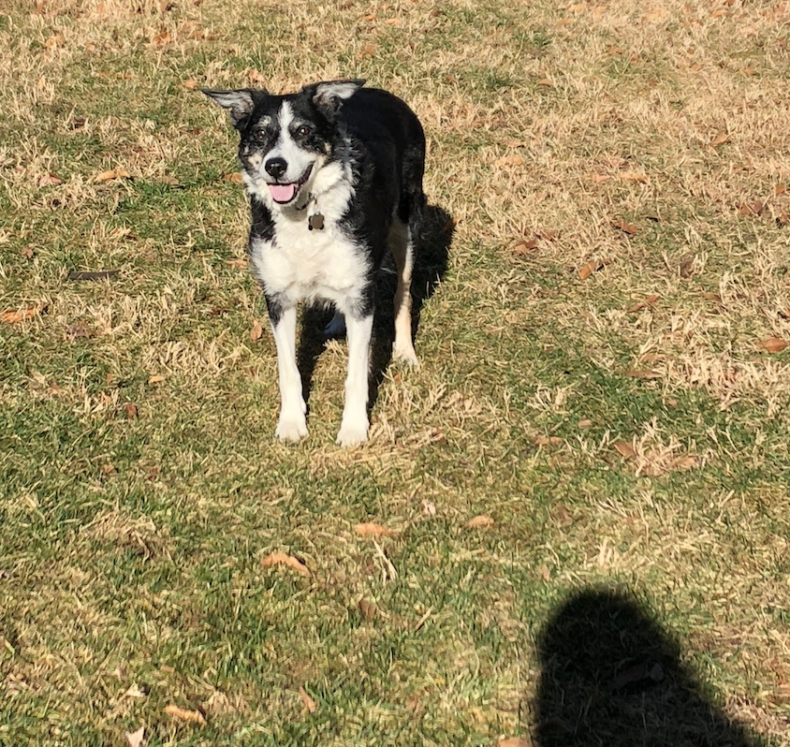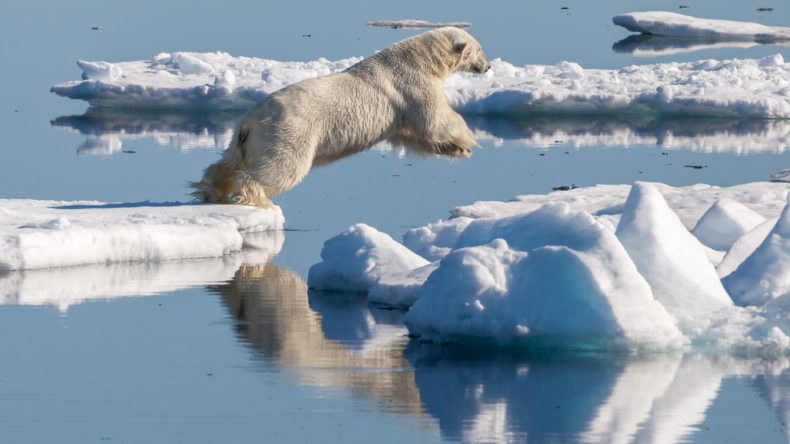
My dog died this week. It was entirely without warning; she was fine Saturday and on Sunday she collapsed, and then she was gone. I am shattered. I am in a state of constant saudade, a Portuguese word meaning the feeling of longing for something or someone you love that has been lost forever. I thought of this post from spring 2018, and thought maybe you would like to read it again.
…
“Look, our snowman is still there,” I said Monday morning.
“Oh!” my daughter said. “It is! Mommy, will it be there for all the times?”
I picked her up. “No, it won’t,” I said. “I think it will melt. Remember how we talked about snow melting?”
“Oh,” my 3-year-old said. “Okay.” Her disappointment was audible.
I busied myself with her coat and hat, and stared extra hard at the Velcro straps on her shoes. Something must have gotten in my eyes.
“Maybe it will still be there when you get home,” I suggested. “Okay,” she said, but not that hopefully.
She has no idea, and I have no idea how to tell her, someday, who else will not be there for all the times. Some of them are too monumental to mention at all. It was enough, on this day, to consider things on a planetary scale.
I mean things like glaciers. Sea ice in the Arctic. Coral reefs. Truly dark skies. Vaquitas. Polar bears. Snows on mountains that I want her to know the way I have known them. She will not know them in the same way. I fill a ledger with the soon-to-be-lost, and I wish I could tell my daughter why it makes me so sad.
I realized there is no English word, at least not one I know, that captures these things. I don’t yet have the vocabulary to teach my daughter about loss. I traffic in language, and I don’t have a way to describe the feeling of known future loss or the sadness it brings.
I pulled out my dictionaries, searching for help. Languages other than English can be really effective at combining meanings, or imbuing complex feelings of emotion and place into a single noun or adjective. I looked through some of my favorites.
There is the Japanese word Natsukashii, which describes a nostalgic longing for the past, with happiness for the fond memory combined with sadness that it is no longer:
懐かしい
This word uses the kanji 懐 , which can describe a feeling one carries in the heart or bosom. Apparently the whole word initially meant wanting to keep something close, but was later used to describe fond remembrances of things past. I can’t read Japanese, but I find this word so visually striking: First the busy Chinese kanji, followed by marks of decreasing size and complexity. It is as if the whole word gradually evaporates, much like the thing it has been designed to express. What a marvelous word.
There is also the Welsh word hiraeth, which is a type of heartsick homesickness. It refers to homesickness and longing mixed with grief over the departed. It made me think of Heathcliff, walking the moors.
The closest option may be the Portuguese word saudade. This word refers to the feeling of longing for something or someone you love that has been lost. Apparently, the word also carries the repressed, unspoken knowledge that the object of longing is gone forever. This could be a good fit.
But these are present-tense words, meant to invoke something already gone or missing. I am talking about the grief felt for something not yet lost, but on its way there. A preemptive sadness for something expressed in the future perfect tense. It not only anticipates that something will have happened, but expresses the sadness I already feel at knowing the future sadness will occur. Like pre-grief for a precrime.
Nor is there any perfect word to describe a beloved thing on the cusp of disappearance. I can come up with plenty of modifiers, like the almost-gone, the pre-extinct, the verging-on-vanished. But I find these lacking.

I turned to Latin, a language that still beguiles me a decade and a half after I tried and failed to learn it. Latin offers many beautiful words for loss and disappearance, several of which root our most evocative English words. There are many, many words for kill. I thought about exanimare, which you could translate to “ex-animate,” or de-life-ify. To deprive of existence. One day the polar bears and the corals and the glaciers and the snowman will be examinate.
I looked through more “e” words, and remembered I particularly like evanesco. It means to disappear, pass away, evaporate. Evanescent, in English, is a word you might use to describe a rainbow, or a total eclipse. I like it because its sound evokes “effervescent,” another Latinate term I like, which comes from the word that means to boil. Champagne bubbles are effervescent. Virtual particles are evanescent (thanks, Prof. Hawking). Something soon passing out of existence, connoting something fleeting, ephemeral, beautiful.
Still, evanescence is not entirely right. My saudade is for things in a state of pre-disappearance. I have a premonition of perdition. Latin offers some help here in the prefix, um, pre-. Pre-evanesce would be closer. This is not a word in any dictionary, but what the hell, I just made it up, so I will start using it anyway. A new word to describe things once taken for granted, but about to be in a state of near-disappearance and ultimate vanishing: Prevanescent.
Prevanescence: the act of being whilst almost unbeing. Prevanescent things are just starting to shimmer on the horizon of my mind, becoming wobbly and unstable, the way they would appear through desert heat. The polar bear walking in my imagination becomes mirage-like. Gradually I begin to lose sight of them, until ultimately they vanish.
The snowman was gone by midday Tuesday. My daughter didn’t notice.
—
Photo credit:
Sadie, by the author
Polar bear by Andreas Weith [CC BY-SA 4.0], via Wikimedia Commons
I am so sorry for the loss of your lovely collie. Of course I have shed tears over this magnificent essay. Every day, I miss my own little pals.
The appalling loss we’re facing, is nothing compared to the social chaos which I believe will result. Our descendents will be tested to the extreme.
While I can’t know your own feelings, I hope it is some solace that there are many of us who have lost four-leg family members and we understand the strength of your feelings and the depths of your loss.
The losses we are also causing worldwide are indescribable, as is the knowledge that our societies have the wealth to prevent more, but those holding the funds do not have the interest or desire.